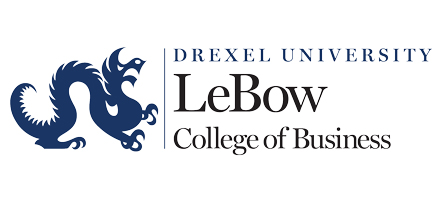For Executive MBA and part-time MBA graduates this year, there’s good news and bad in a new research report by the Graduate Management Admission Council (GMAC) out yesterday (May 10). The survey of forthcoming MBA graduates, from full-time, two-year programs to evening part-timers, is based on 4,794 recent or soon-to-be grads at 156 schools.
First, the good news: An improved job market was especially noticeable for graduates surveyed from part-time MBA programs, for which 2011 set a record for the highest percentage of graduates (55%) with job offers in the past five years, according to GMAC, which administers the GMAT test. The Class of 2011 executive MBA students, meantime, is twice as likely as last year’s graduates to receive a job offer. GMAC found that roughly 14% of part-time MBA students said they were searching for a job, while 10% of EMBA students said they were in the market for a new position.
Now, the bad news: The job market improvement for part-time MBA students is tempered by a lagging percentage increase in salary compared with graduates of other programs. The study showed that part-timers expect base salary increases of 49% this year, below the 55% they reported in 2010. And students in executive MBA programs were the only group to experience a decrease in the number of job offers per student this year compared with 2010. On average, EMBA students reported receiving 1.6 job offers, down from 2.1 last year, 2.3 in 2009, and 2.6 in 2008.
GMAC said the positive upturn in the percentage of part-time MBA graduates with job offers (55%), in fact, has surpassed the height of offers previously recorded in 2001 (51%). Executive MBA students (47%) fell short of the highest recorded percentage in 2007 (56%), but were twice as likely as the class of 2010 to have a job offer in hand. Last year, only 23% of EMBA students had job offers. In comparison, GMAC added that offers to two-year full-time MBA graduates (57%) have increased from 2010 levels and appear to have recovered to pre-recessionary levels.
More than a third of graduating students (37%) intend to stay with their current employer after completing their business program. The majority of these students will be graduating from part-time or executive MBA programs. In fact, 81 percent of part-time MBA students and 74 percent of executive MBA students expect to stay with their current employer, compared with two-year (14%) and one-year (14%) full-time MBA students. On average, those who plan to remain with their present employer after graduation expect to receive a 39 percent increase in salary. Executive MBA programs also had the highest reported percentage of self-employed graduates (15.5%).
The annual GMAC survey also measures student satisfaction with their MBA experiences. Researchers found that the value of a graduate business education remains high, reflected in the 92% of Class of 2011 graduate business students who rated the value of their education as outstanding, excellent, or good. The following are the breakdowns by program type, according to the study:
- • Two-year full-time MBA: 38 percent outstanding, 36 percent excellent, and 19 percent good.
- • One-year full-time MBA: 26 percent outstanding, 39 percent excellent, and 26 percent good.
- • Part-time MBA: 21 percent outstanding, 42 percent excellent, and 30 percent good.
- • Executive MBA: 32 percent outstanding, 39 percent excellent, and 23 percent good.
GMAC said that student satisfaction ratings improved the most for part-time MBA programs, with a 34 percent improvement rate on average. This was driven primarily by positive views of admissions, career services, and student services, said GMAC. Improvements in satisfaction ratings for two-year full-time MBA programs were driven by admissions, student services, and career services and on average were 21 percent higher in 2011 than five years ago.
Executive MBA programs experienced a 10 percent increase in satisfaction ratings, due primarily to career services and admissions. Although executive MBA programs tended to maintain the highest student ratings in nearly all categories, two areas— faculty and curriculum—had slight decreases in student satisfaction between 2006 and 2011.




